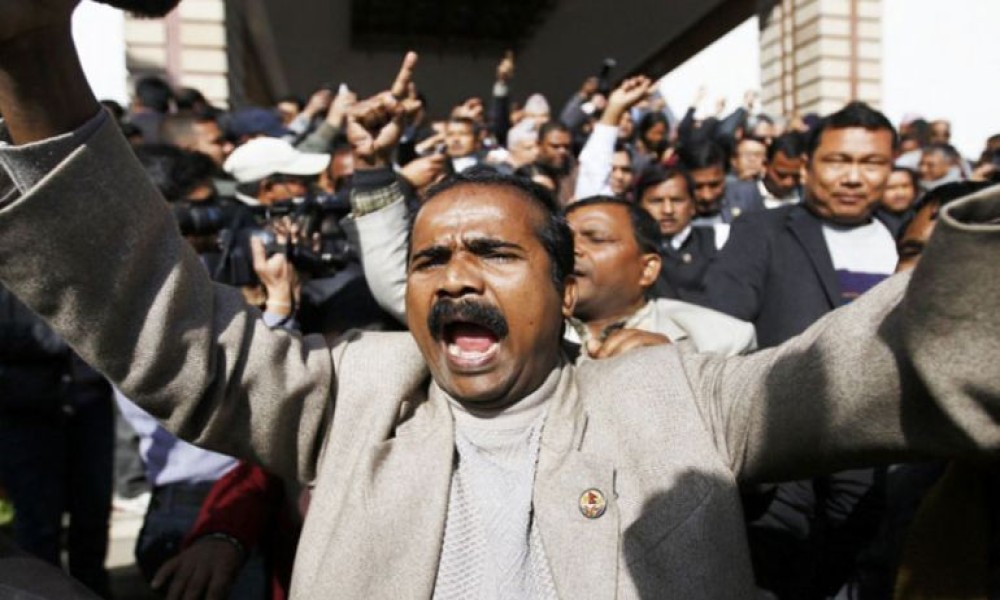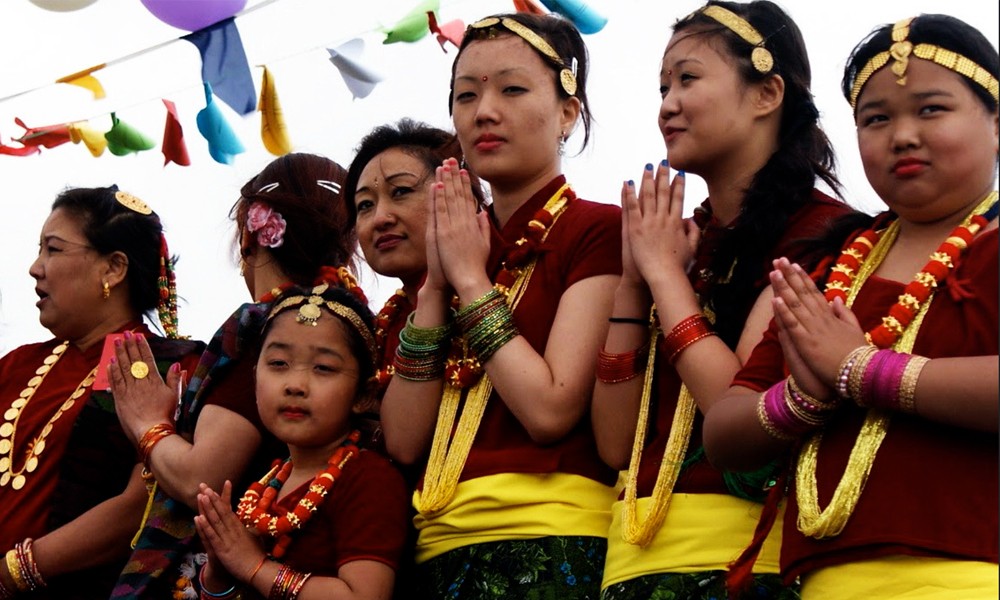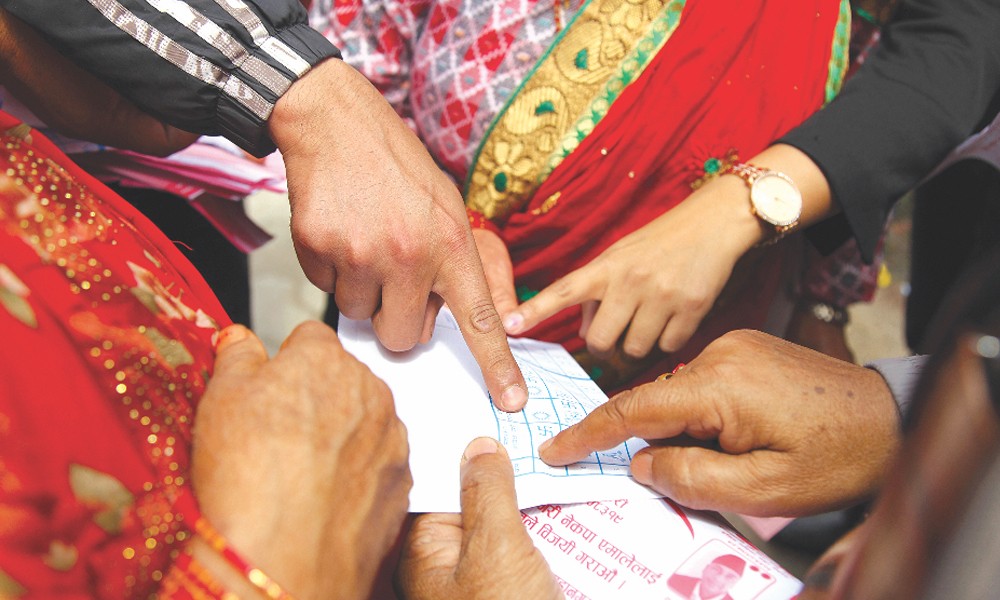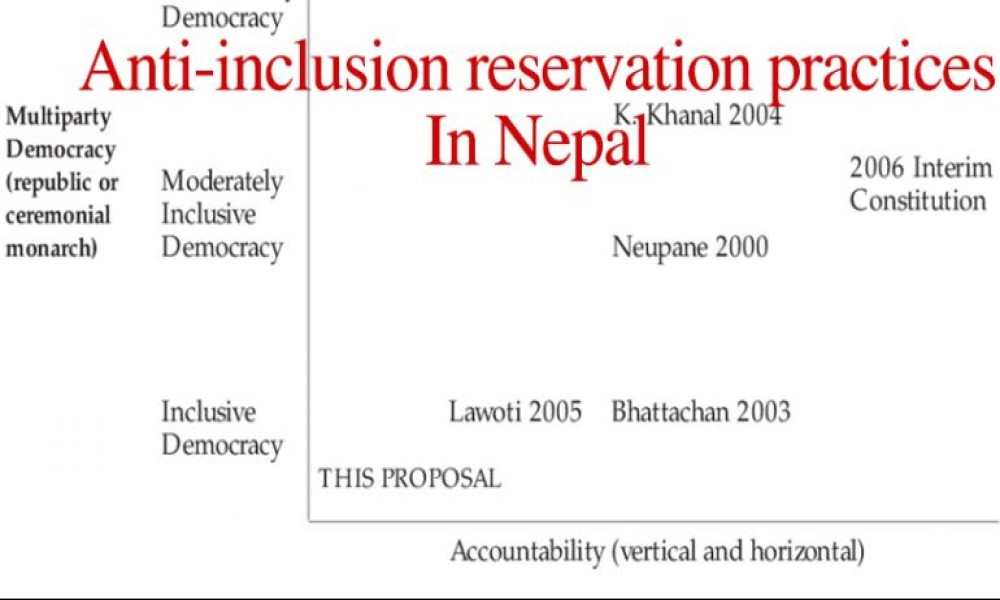When Madhesi parties included the agenda of a multinational state in their 11-point demands last year, it was interpreted by the hill elites as the first step towards creating a separate Madhes nation. But it was not just a Madhesi agenda. Adivasi Janajatis, another marginalized community, are also pushing for a multinational state in Nepal. And it is not an act of secession. The uproar over the demand for a multinational state seems to have stemmed from the lack of constructive dialogue between the hill elites and the marginalized communities.
The hill Brahmins and Chhetris are against ethnic identity-based federal provinces. Even those Janajatis who have migrated out of their ancestral villages and are living in other ethnic clusters look wary of ethnic identity-based federalism. But the concept of federalism is to promote harmony and equality. It will never hurt any community. So no one needs to be suspicious about it.
The concept of federalism is to promote harmony and equality. It will never hurt any community. So no one needs to be suspicious about it.
The mainstream Nepali media should have worked proactively to explain what federalism is, and why it is not a divisive concept. But the Nepali media, which unfortunately is an extension of the state dominated by certain caste groups, played a negative role, hardly explaining why the marginalized communities are protesting the new constitution.
A section of the ruling society is opposed to federating Nepal because they believe that they are where they are because of merit. They argue that they are more intelligent and hard-working than marginalized communities, and this is why they are rich and successful. But this is a myth the ruling class created to perpetuate their dominance. To bust this myth, it would be sufficient to draw a comparison between Nepal and India.
In our southern neighbor, many people belonging to Adivasi Janajati and Dalit communities have reached the leadership position. Pawan Chamling of Sikkim, MK Subba of Assam, Subash Ghising and Madan Tamang of Darjeeling are a few examples. They are Janajatis of Nepali origin. Despite their ethnicity, they rose up as leaders and ruled their states and regions at some points. If Janajatis of Nepali origin can become successful, why can they not do the same in Nepal? The reason is simple: they have been deprived of opportunities in Nepal by the state policy that promoted one language, culture and identity.
Bahuns have become successful not because they are more talented or hard-working, but because the state always supported them by creating conducive environment in which they could study well.
Bahuns have become successful not because they are more talented or hard-working, but because the state always supported them by creating conducive environment in which they could study well. For example, according to a 1994 article written by Dipak Gyawali, 54 of the 75 Chief District Officers that year had studied in Sanskrit schools. The state had provided free education for those who wanted to study in Sanskrit schools. They lived in the hostel managed by the state. They ate food given by the state. And they studied without paying a penny. But those who wanted to study in their own mother tongues did not have any school to go to. It was a kind of reservation policy adopted by the state for a certain caste group.
Those who are against federalism should understand that they are here because the state helped them reach here. They have now been able to reject reservation because the state reserved seats for them. They come to reality only when they are engaged in constructive dialogue with pro-federalism forces.










